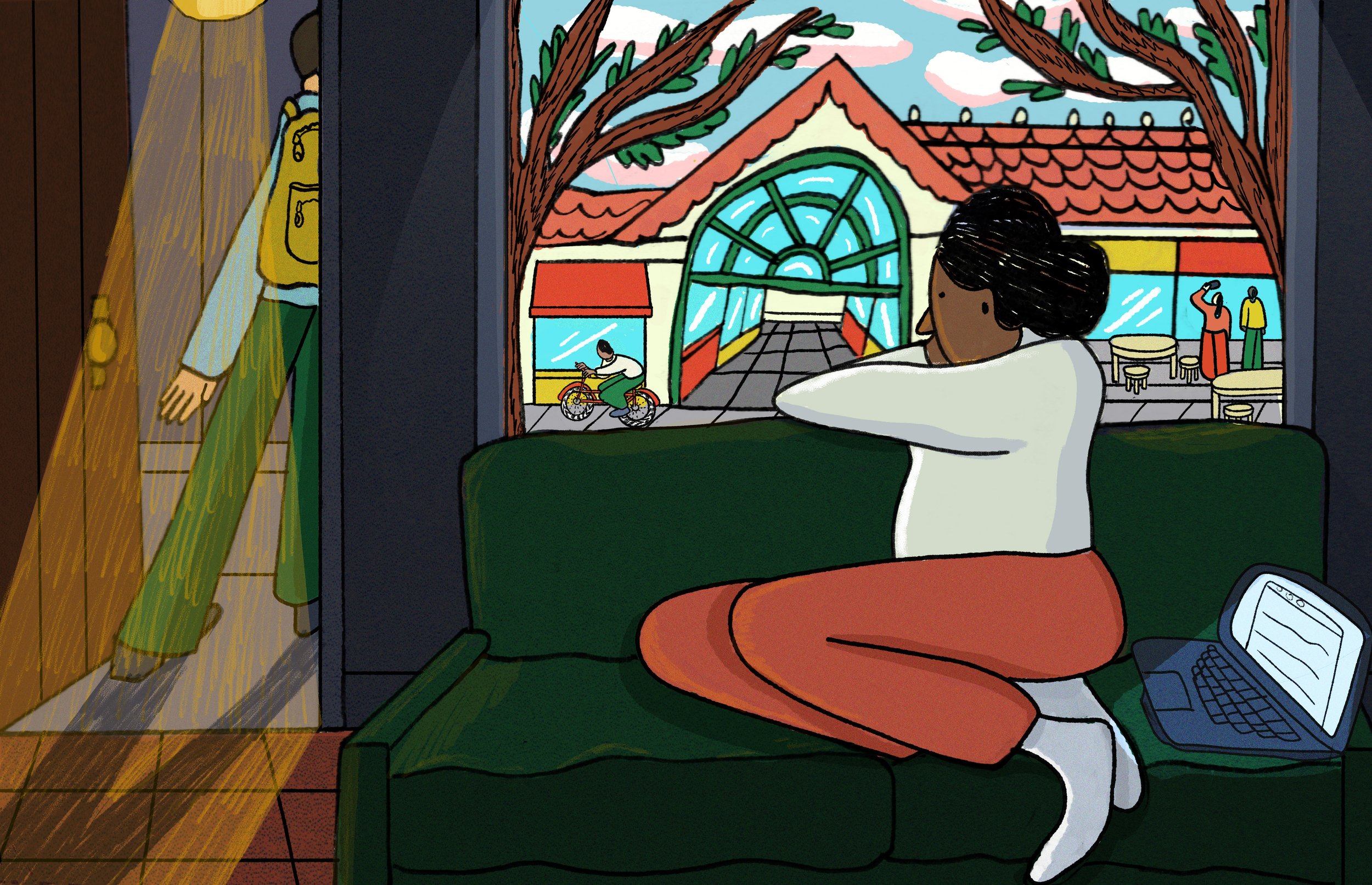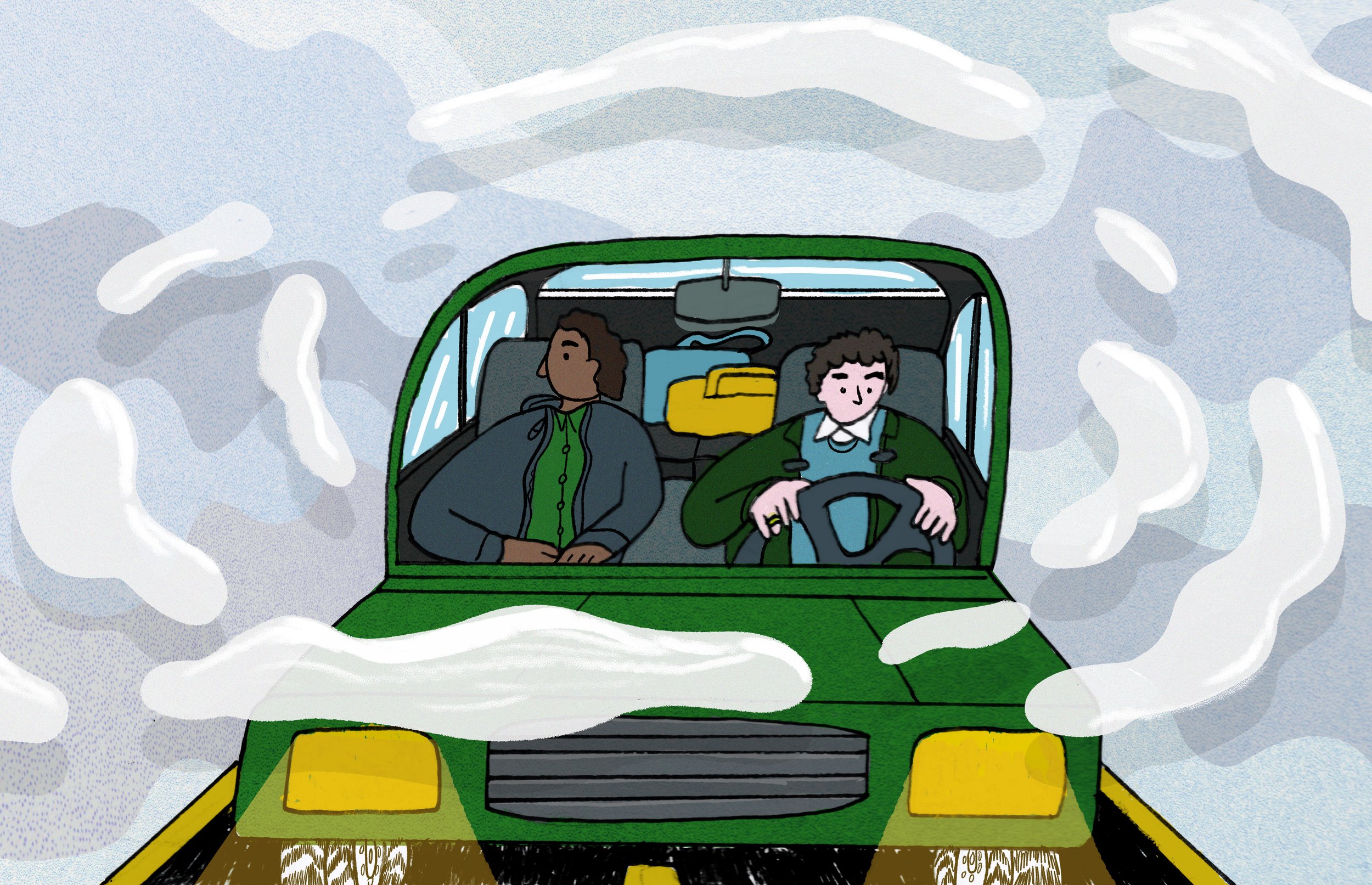10 p.m. in Sarajevo

10 p.m. in Sarajevo is a charcoal sketch of pedestrians passing under street lamps, their silhouettes diffused by a thick haze.
We step out into the street, and I inhale the scent of November in Sarajevo. Coal-fired furnaces create a wall of smog in the valley between the mountains. On a good day, the air smells like a campfire, on a bad one like a tire fire. Today, it's bad.
I wear the one black dress I packed for three months of travel across the Balkans. My companion and I, a lover I stay with every time I’m in Sarajevo, are on our way to meet his friends. We take a shortcut through the cobblestone street that angles sharply downhill.
I peer through small openings in the smog, portals to the city below, watching twinkling car lights move east and west along Maršala Tita Street. In the foreground, the smog skims the cemetery where neat rows of obelisk-shaped gravestones commemorate the fathers, brothers, and sons who died between 1992 and 1995. Further down the hill, minarets from the mosques and the bell tower from the Orthodox church pierce the layers of thick air like they are coming up for a gulp of breath.
The street cats scatter when they see us. I coo and wish them good evening with my toddler-level Bosnian vocabulary. "Dobro vece mala maco." The small one raises its tale in disgust and disappears in a dark corner. The cats only purr when given peace offerings of chicken or fish.
We arrive at Kino Bosna. A cinema before the war, it's now a makeshift club with folding tables and well-worn sofas. The air inside is even thicker than the smog outside. I buy two bottles of Sarajevska beer, the Budweiser of Bosnia, from a cooler packed with ice. My companion and I look each other in the eyes and clink our bottles.
On Monday nights, Kino Bosna is a gathering place that feels like a distant cousin's wedding. Young women in their tightest skirts flirt with men in tracksuits. Their mothers and grandmothers sit in opposite corners, smoking hand-rolled cigarettes and sipping homebrew brandy—cherry, plum, and apple—poured from recycled Coke bottles. Old men play Bosnian folk music on accordions and wooden guitars, while a woman with heavily penciled eyebrows serenades in deep, low tones. The owner, a woman in her 60s or 70s, walks from table to table, checking in on old friends. She offers plates of sweet baklava.
It's past midnight, and no one checks watches or emails or considers the early morning alarm.
My companion pulls me closer. His breath tickles my ear. “This is a famous Sevdah song. She is waiting for her love to return. The flowers are blooming, but everything is dark without him.”
The guttural sadness is clear even though I do not understand the words. Love, loss, longing. The entire bar—retirees, twenty-somethings, Bosnians, Croats, and Serbs—stand up and sway in unison to the melancholy. I grab my lover’s hand and our bodies mesh, moving with the crowd.
About the Author
Kristin Amico is a freelance journalist and travel writer, though her marketing job, mostly, pays the bills. Her work has been published in Roads and Kingdoms, Fodor's, Hemispheres, The Independent, The Boston Globe, and Huffington Post. She is working on a collection of essays about her two years living out of a 50-liter backpack. She lives in Los Angeles in a tiny bungalow flanked by palm trees
Illustration by Victoria Lu.
Edited by Aube Rey Lescure.











